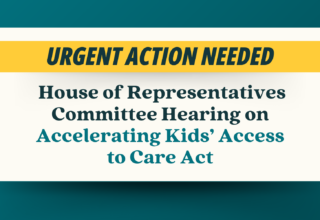The Pediatric Brain Tumor Foundation (PBTF) has awarded a $200,000 grant to Dr. Michael Dewan, assistant professor of Neurological Surgery and Surgical Director of the Pediatric Neuro-Oncology Program at Monroe Carell Jr. Children’s Hospital at Vanderbilt, to study why low-grade gliomas behave and spread like cancerous tumors.
Low-grade gliomas are the most common form of pediatric brain tumor. Non-cancerous, they are slow-growing and typically more treatable than other types of brain tumors. Over time, though, some low-grade gliomas spread to different parts of the brain and spine. When they do, they become more aggressive and mortality rates rise.
“We know there are molecular alterations that occur in lung cancer, for example, that predispose them to metastasize to other parts of the body,” says Dr. Dewan. “We wonder whether similar mutations or a genetic change at the cell level happens in low-grade gliomas, prompting the tumor, instead of being localized in one part of the brain, to begin to spread.”
Pinpointing the molecular alterations could eventually lead to treatment.
“If we can find those molecular alterations…then in the future when we have a patient with a low-grade glioma, we can interrogate that tumor for the same molecular alterations,” Dr. Dewan says. “When we find one, we say, ‘time out.’ This has been identified as low grade, but we aren’t going to treat it as such. We are going to be more aggressive with it. We may image it more often or perhaps resect it more extensively to get ahead of it before it becomes a bad actor.”
PBTF’s grant funding will enable Dr. Dewan and collaborators at Vanderbilt University Medical Center and Toronto’s Hospital for Sick Children to collect low-grade glioma tissue samples and molecular information from all over the world, which Dr. Dewan explains is crucial to the project’s success.
“We can’t just study 20 patients. In order to get enough data to make definitive conclusions we need more patients, and to get more patients we need more centers,” he says. “Partnering with PBTF in this effort has changed what is possible. Not only can we recruit more centers, but we can take a much deeper dive into the molecular nuances of these tumors. This international collaboration demonstrates a rare, diverse symphony of investigators, neurosurgeons, oncologists, and pathologists. The work we do together will have a direct impact on children here and around the world.”
Amy Weinstein, PBTF’s National Director of Research Investments, echoes Dr. Dewan’s enthusiasm at the project’s potential. “Low-grade gliomas are often overlooked in research. Because they’re considered ‘low-grade,’ there’s a misconception that they aren’t harmful. On behalf of the thousands of children facing this disease, PBTF is grateful to Dr. Dewan and his colleagues for prioritizing low-grade gliomas as an area of discovery. More effective treatments have the potential to change the trajectory of children’s lives.”
PBTF is committed to leading the way to a future without childhood cancer by identifying and addressing gaps in how children are diagnosed, treated, and cared for throughout their lives. The largest patient advocacy funder of pediatric brain tumor research, every dollar PBTF invests attracts another 12 dollars in follow-on funding. You can help us make more breakthroughs and better treatments possible. Sign up today to receive the latest pediatric brain tumor news and learn how you can make a difference.


